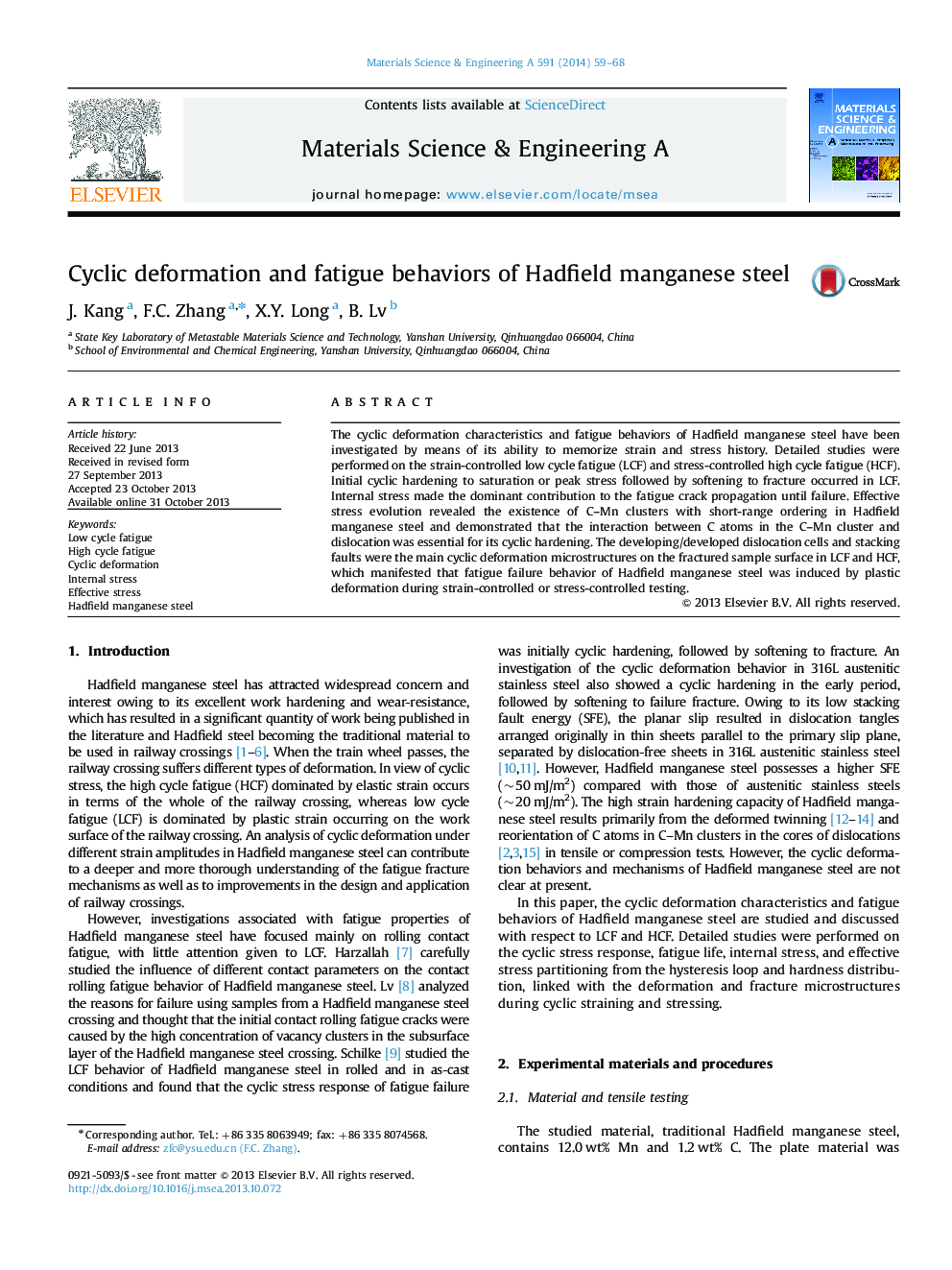| Article ID | Journal | Published Year | Pages | File Type |
|---|---|---|---|---|
| 1575538 | Materials Science and Engineering: A | 2014 | 10 Pages |
Abstract
The cyclic deformation characteristics and fatigue behaviors of Hadfield manganese steel have been investigated by means of its ability to memorize strain and stress history. Detailed studies were performed on the strain-controlled low cycle fatigue (LCF) and stress-controlled high cycle fatigue (HCF). Initial cyclic hardening to saturation or peak stress followed by softening to fracture occurred in LCF. Internal stress made the dominant contribution to the fatigue crack propagation until failure. Effective stress evolution revealed the existence of C-Mn clusters with short-range ordering in Hadfield manganese steel and demonstrated that the interaction between C atoms in the C-Mn cluster and dislocation was essential for its cyclic hardening. The developing/developed dislocation cells and stacking faults were the main cyclic deformation microstructures on the fractured sample surface in LCF and HCF, which manifested that fatigue failure behavior of Hadfield manganese steel was induced by plastic deformation during strain-controlled or stress-controlled testing.
Related Topics
Physical Sciences and Engineering
Materials Science
Materials Science (General)
Authors
J. Kang, F.C. Zhang, X.Y. Long, B. Lv,
